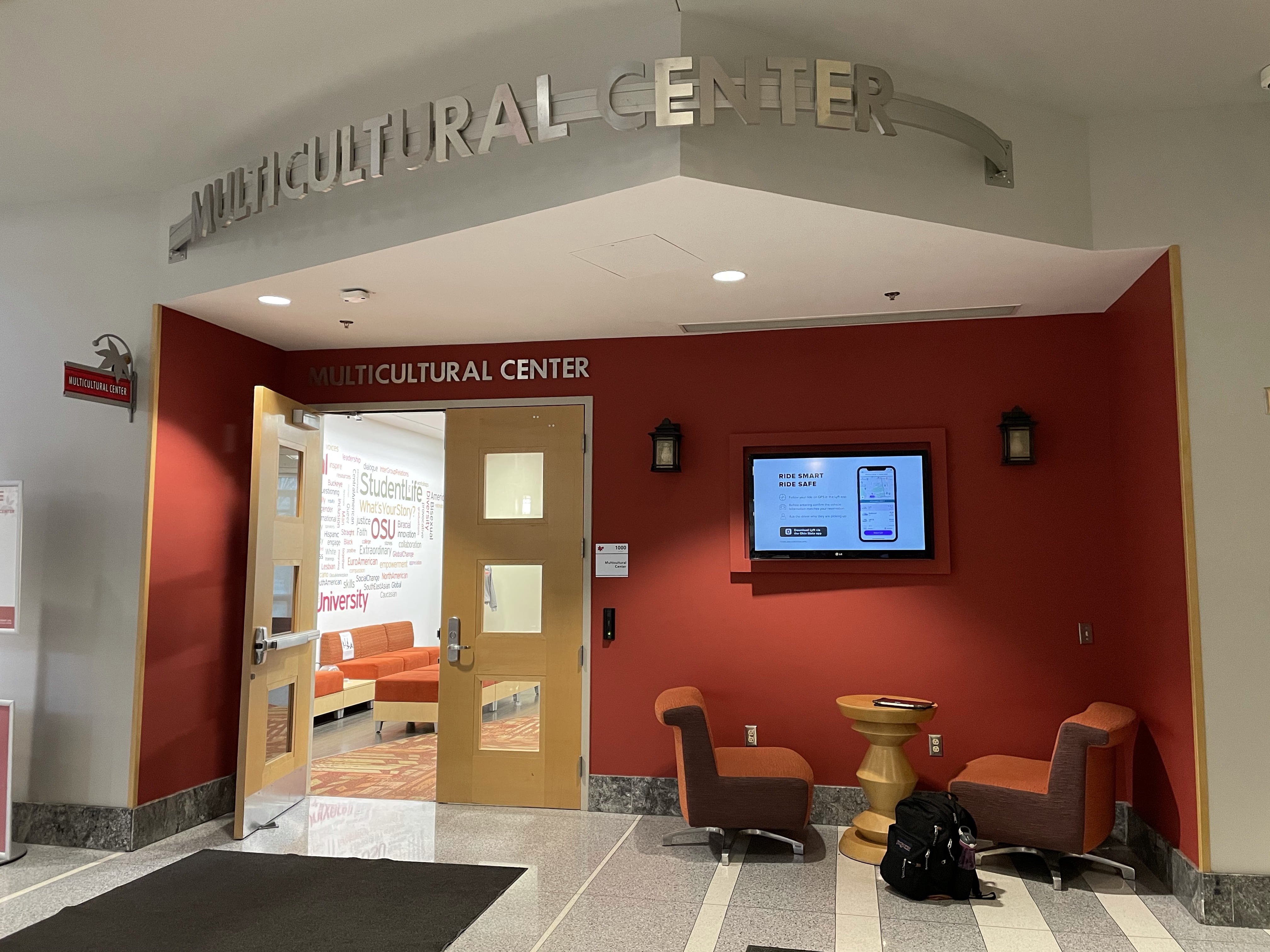
Ohio State’s new First Generation College Student Community Connections Mentorship Program at the Student Life Multicultural Center matches new first-generation students with other older first-generation-student mentors to help them navigate college and provide support. Credit: Jessica Langer | Lantern Reporter
First-generation college students have access to a new mentorship program through Ohio State that launched last fall.
Ohio State’s new First Generation College Student Community Connections Mentorship Program at the Student Life Multicultural Center matches new first-generation students with other first-generation student and graduate mentors to help them navigate college and provide support. The program is open throughout the academic year to any first-generation student who completes the registration form.
“I hope this program allows them to navigate Ohio State in an easier way, and to have more connections, and just to have a sense of community,” Melissa Beard Jacob, intercultural specialist at the Student Life Multicultural Center and a first-generation college graduate, said. “I think it’s really important for them to have somebody that they know they can talk to and lean on for advice.”
The mentorship program was developed in fall 2020 along with the First-Gen Connections Cohort — twice-a-month meetings for first-generation students to socialize with each other — after receiving feedback from students that they wanted more support from other first-generation students and graduates, Angie Wellman, associate director of the Student Life Multicultural Center and a first-generation college graduate, said.
Because both programs were created during the pandemic, they are completely remote this year but will be in-person in the future, Wellman said. Twenty-five students have been matched with a mentor since the program began.
Jacob said programs such as the mentorship program are important supports for first-generation students, who often find their families unable to answer questions about college life.
The mentorship program is offered in tandem with the First-Gen Connections Cohort and the First-Gen Student Empowerment Series — workshops and programs based around integral information for college students such as applying for and paying off student loans.
After a student completes the registration form, Jacob said she schedules an individual meeting to determine what the student is looking for in a mentor, combining information from the meeting and the application form to find the right match.
Jacob said students typically look for a mentor who can help them with their career goals. She said she also takes a student’s social identity, such as race or sexuality, into account, so they can relate through similar life experiences.
“For mentors, it’s a great way for them to give back to the community, especially for those who do identify as first gen,” Jacob said. “They probably remember all those feelings they had when they were first generation students.”
Wellman said she values being able to provide programs and services not available to her when she was in college, and she hopes, in addition to learning more about how to navigate university and institutional systems, first generation students feel a sense of belonging.
“You’re not the only one. It’s completely OK that you’re the first one in your family to come. In fact, it’s something to be proud of,” Wellman said. “Because ultimately, I know that parents and families are just really proud of their young person for pursuing their dreams, and we want to be able to support those dreams in whatever way they come.”


